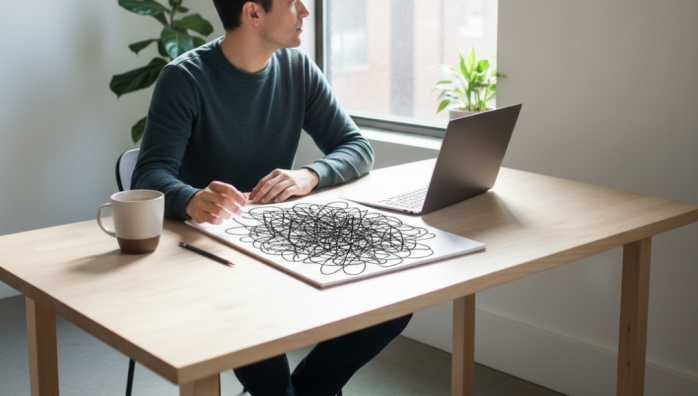Understanding the Psychology Behind Procrastination
by admin in Productivity & Tools 128 - Last Update November 18, 2025

For years, I told myself a simple story: I procrastinate because I\'m lazy. It was an easy, if unflattering, explanation. I\'d have a big project, a deadline looming, and I\'d find myself organizing my spice rack or deep-diving into the history of a forgotten 90s TV show. Every time, I\'d end the day feeling guilty, frustrated, and even more stressed. I tried every time management hack in the book—the Pomodoro Technique, time blocking, to-do list apps—but nothing truly stuck. The cycle continued, and I just assumed I was fundamentally undisciplined.
My big shift: It\'s not a character flaw
The real breakthrough for me came when I stopped looking at procrastination as a time management problem and started seeing it for what it truly is: an emotional regulation problem. This was a complete paradigm shift. It wasn\'t that I didn\'t want to do the work; it was that the work triggered uncomfortable feelings. Feelings like anxiety about failing, boredom with a tedious task, or frustration with a complex problem. My brain, in an attempt to protect me from these negative emotions, would seek out a quick and easy mood boost. Hello, social media feed.
The battle between the present and future self
I realized I was caught in a constant struggle. My \'Future Self\' wanted the long-term rewards of completing the project, but my \'Present Self\' was only concerned with feeling good *right now*. Delaying the task provided immediate relief from the negative feelings associated with it. The problem is, that relief is temporary and the long-term consequences—the stress, the guilt, the last-minute panic—are far worse. Recognizing this internal conflict was the first step toward actually changing my behavior.
How I started to work with my brain, not against it
Once I accepted that my procrastination was an emotional response, my strategy changed completely. Instead of trying to force myself into productivity with sheer willpower, I started focusing on making tasks less emotionally threatening. It was about lowering the barrier to entry so my brain didn\'t immediately hit the panic button.
- I started breaking things down absurdly small. Instead of \'write report,\' my first step became \'open a new document and write a title.\' It sounds ridiculous, but it\'s almost impossible to feel intimidated by that. It gets the ball rolling.
- I practiced self-compassion. This was huge. Instead of beating myself up for procrastinating, I\'d acknowledge the feeling. \'Okay, I\'m feeling anxious about this. That\'s understandable.\' This simple act of kindness reduced the guilt and made it easier to get back on track.
- I tied tasks to my values. I started asking \'why\' I needed to do something. Connecting a boring task to a larger, meaningful goal (like providing for my family or building a skill I care about) made it feel less like a chore and more like a choice.
The lasting impact of understanding the \'why\'
I still procrastinate sometimes—I\'m human. But it no longer controls me or fills me with shame. By understanding the psychology behind my actions, I\'ve developed a toolkit that\'s based on empathy for myself rather than brute force. It\'s less about becoming a productivity machine and more about becoming an expert in managing my own mind. And honestly, that\'s been more valuable than any app or technique I\'ve ever tried.














